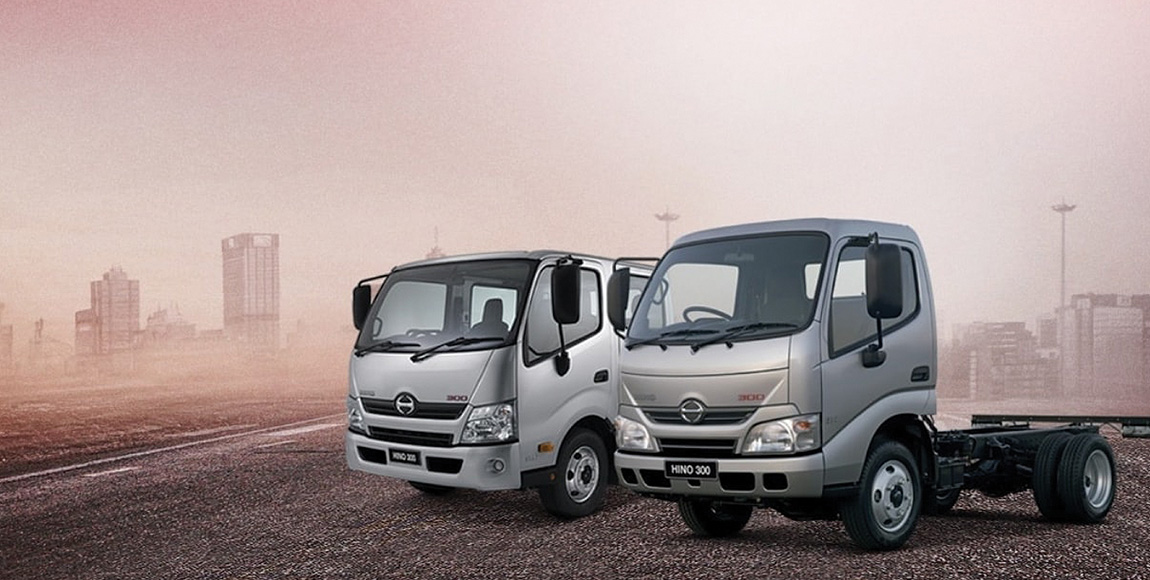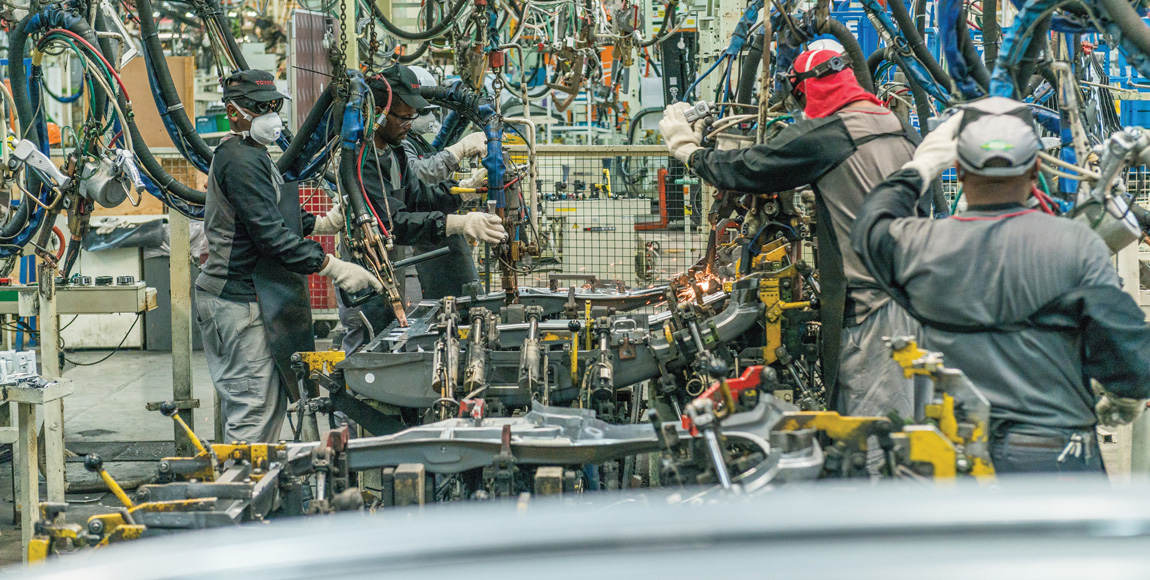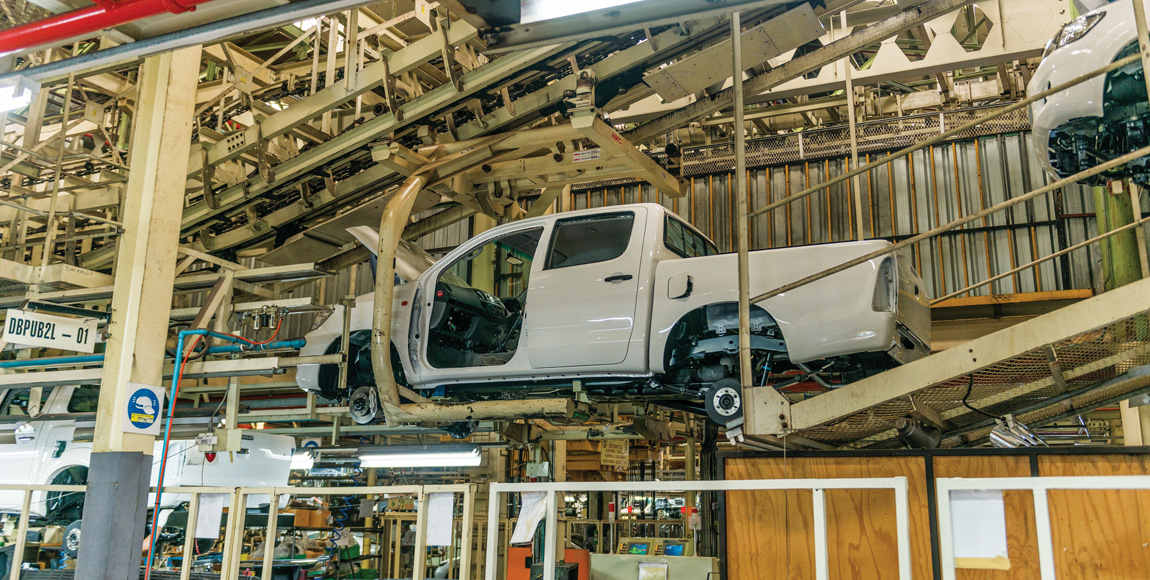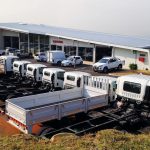Toyota and Hino: cultures of excellence

The two main pillars of The Toyota Way – continuous improvement and respect for people – define the company’s DNA the world over, resulting in reliable vehicles and the sustainable development of the organisation. FOCUS does a deep dive into this exceptional company, which is a benchmark in its sector
Whether it’s sturdy Hilux bakkies, reliable Corollas, dependable Hino trucks, snazzy RAV4s or economical Ses’fikile minibus taxis, Toyota vehicles are omnipresent on South Africa’s highways and byways.
This is not surprising. Renowned and respected for its reliable, durable and affordable vehicles for nearly 50 years, Toyota South Africa Motors (TSAM) has managed to consistently lead the pack in terms of total sales and customer satisfaction. This is borne out by the fact that Toyota and Hino came out tops in the annual NADA Dealer Satisfaction Index in 2019 – yet again.
Since TSAM opened its doors for business in 1961, courtesy of the tireless efforts of renowned and respected South African entrepreneur, Dr Albert Wessels, the company has made significant progress in securing the trust of South African consumers and dealers by producing top quality and sought-after vehicles.
Fast forward to today, and Toyota South Africa Motors is a colossal auto manufacturer straddling the length and breadth of the country. Now wholly owned by Toyota Motor Corporation (TMC) in Japan, TSAM’s head office is located in Sandton, Gauteng, while the organisation’s manufacturing plant operates from Prospecton, Durban.
World class factory
The Durban plant is the largest automotive factory in South Africa, producing Hilux, Fortuner, Corolla and Hiace Ses’fikile minibus taxis. TSAM is also responsible for the management and distribution of the Hino and Lexus brands in South Africa, and a Hino manufacturing plant is currently under construction in Durban. In addition, TSAM has a huge parts distribution warehouse in Boksburg.

Mzo Witbooi, corporate public relations manager for TSAM, explains: “Toyota vehicles are sold in more than 170 countries and regions, and TMC in Japan oversees manufacturing affiliates in 28 countries and regions.
“As the parent company, TMC’s role is to streamline its various operations across the globe. However, the organisation is aware that it cannot adopt a ‘cookie-cutter approach’ in its operations as there are varying social, cultural, political and economic dynamics at play in each region.
“That said, some of the organisation’s core business principles are virtually invaluable and apply internationally. For example, The Toyota Way forms the backbone of the synergies that exist between TMC and its affiliates, including TSAM.”
According to Witbooi, the two main pillars of The Toyota Way are Continuous Improvement (kaizen) and Respect for People. “These two ideals are so important that they define the Toyota DNA the world over. We endeavour to act in accordance with these guiding principles to produce reliable vehicles and the sustainable development of our society,” he explains.
According to Witbooi, aftersales support – through TSAM’s wider dealer network – as well as the quality of the company’s products set the Toyota and Hino nameplates apart. “The quality, durability and reliability (QDR) of our products are the mainstays of the Toyota and Hino brands,” he stresses.
Investing in people
Just as passionate as TSAM is about satisfying customers through service excellence, the company believes that a contented and motivated workforce has a higher probability of making significant contributions to the organisation.
“It is for this reason that the organisation invests in various engagement measures with its staff. Employee engagement scores on various cultural and operational aspects are closely analysed to determine necessary organisational modifications. This is an ongoing process and is founded on the kaizen spirit of continuous improvement. Communication is also key at TSAM and takes place across various platforms.
“Our latest platform is called T-Talk and it is a cellphone SMS system that allows every employee to engage with management and vice versa. We also have team meetings at the beginning of each year, in both Johannesburg and Durban, when our TSAM management review the previous year as well as share the organisation’s vision and targets for the New Year. Team meetings are attended by all staff,” Witbooi explains.
To continuously build and develop talent and elevate people globally to be at their very best at all times, Toyota introduced an accelerated development programme about 10 years ago. This addresses concerns about the lack of highly skilled female engineers, Witbooi says.
Potential candidates were then assigned international projects based in Japan and Thailand. This opportunity has been extended to assignments positioned in various European affiliates – Turkey, Belgium, the United Kingdom, Poland and France. The latest assignments will now venture into India and United States.
“Similarly, Toyota South Africa has underlined its commitment to comprehensive and ongoing training and skills development with the opening of dedicated state-of-the-art training facilities, called TALA, in Sandton and Durban. The academy provides skills development opportunities for those employed by Toyota and Hino, their dealers and suppliers – all members of the extended Toyota family in South Africa.
“Our dealers are also encouraged to upskill previously disadvantaged staff (including departmental managers), and from these individuals there will be a pool for both managers as well as dealer principals,” he adds.

Economic empowerment
Instead of focusing just on the BEE scorecard, TSAM strives to ensure participation, ownership and equity across the full value chain, Witbooi explains.
“Toyota purchasing has aligned its localisation and transformation activities. Furthermore, in partnership with the Ubuntu Institute, TSAM has created 447 job opportunities for previously disadvantaged South African youths.
“The initiative is in response to President Cyril Ramaphosa’s call for the private sector to play a significant role in job creation through the Youth Employment Service (YES) programme. The initiative is part of the Yes4Youth campaign, which is championed by Ramaphosa and driven by the private sector,” Witbooi reveals.
To support industrialisation on the continent, the Toyota Wessels Institute for Manufacturing Studies
(TWIMS) has partnered with the Gordon Institute of Business Science (GIBS) to open a non-profit
manufacturing institute in KwaZulu-Natal. A team of leading academics – led by Professor Justin Barnes,
TWIMS executive director – has developed the manufacturing-focused curriculum.
The TWIMS campus was recently opened by representatives from government, Toyota, GIBS, several leading academics, the Toyota SA Educational Trust, and members of the founding Wessels family. TWIMS aims to become the hub for manufacturing research in Africa. For this purpose, it is creating dedicated research fellows and is facilitating links with manufacturing research centres across the world.
Looking to the future
Going forward, Toyota aims to make the transition from an automaker to a fully fledged mobility company providing mobility-related services. To this end, TMC and SoftBank (which is focusing on AI development) are working together to create an entirely new form of mobility, referred to as the Mobility AI revolution.
In addition, Toyota is investing US$ 500 million (about R7,1 billion) in Uber and working with the company on joint development of a self-driving mobility vehicle based on the Sienna minivan. The plan is to introduce it into Uber’s ride-share network in 2021. “This will set the scene for the global dawn of a brand new, exciting Toyota era,” concludes Witbooi.
(With acknowledgement to DeKat magazine. Used with permission.)
Published by
Focus on Transport
focusmagsa




